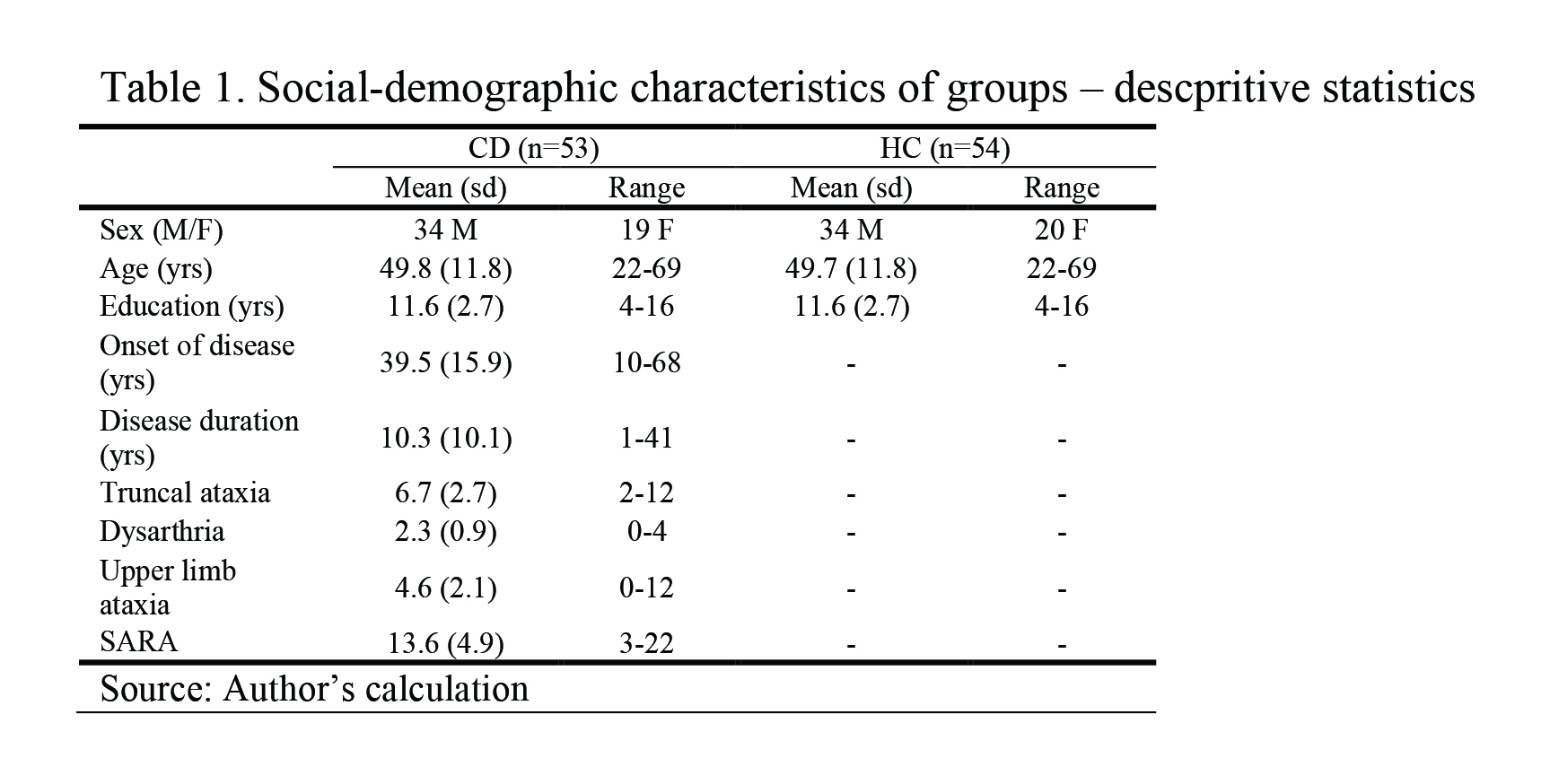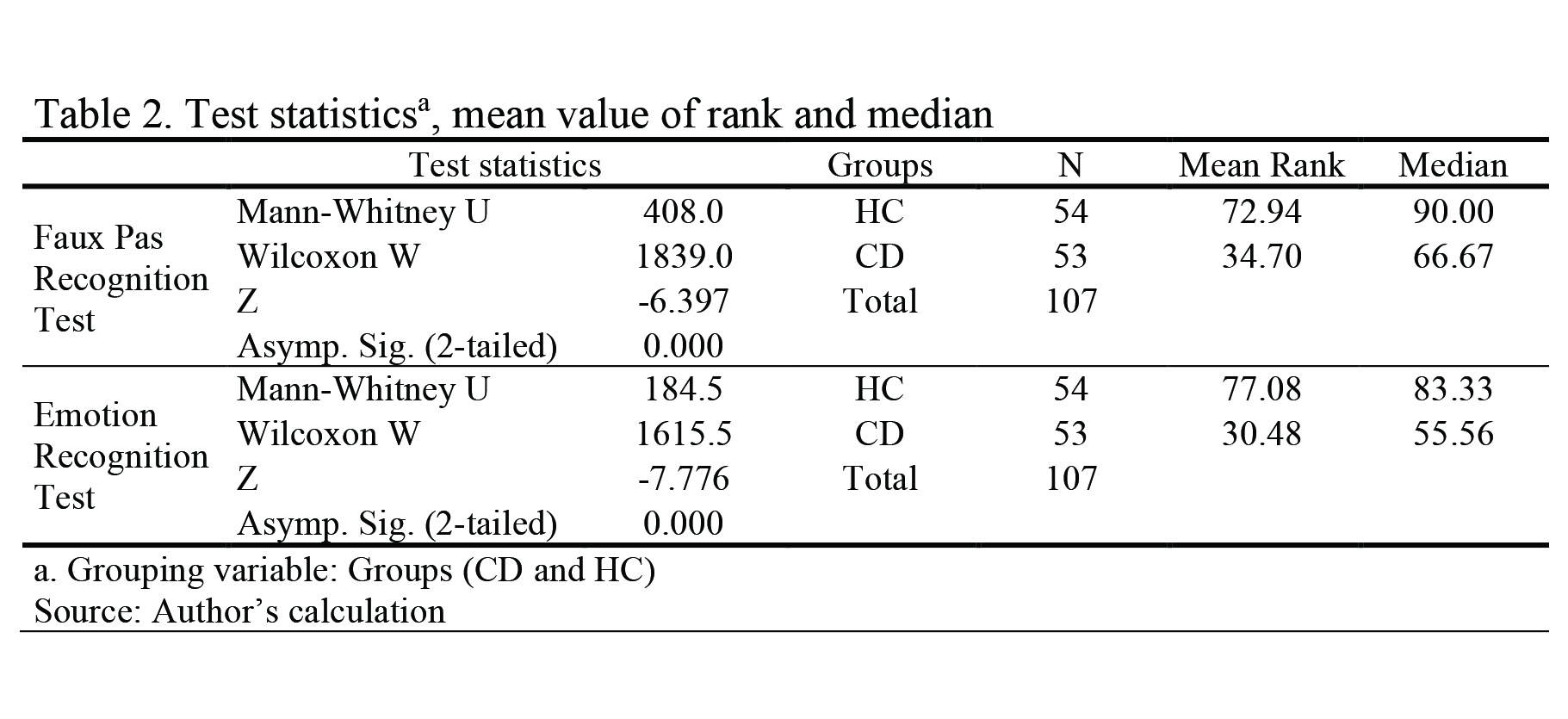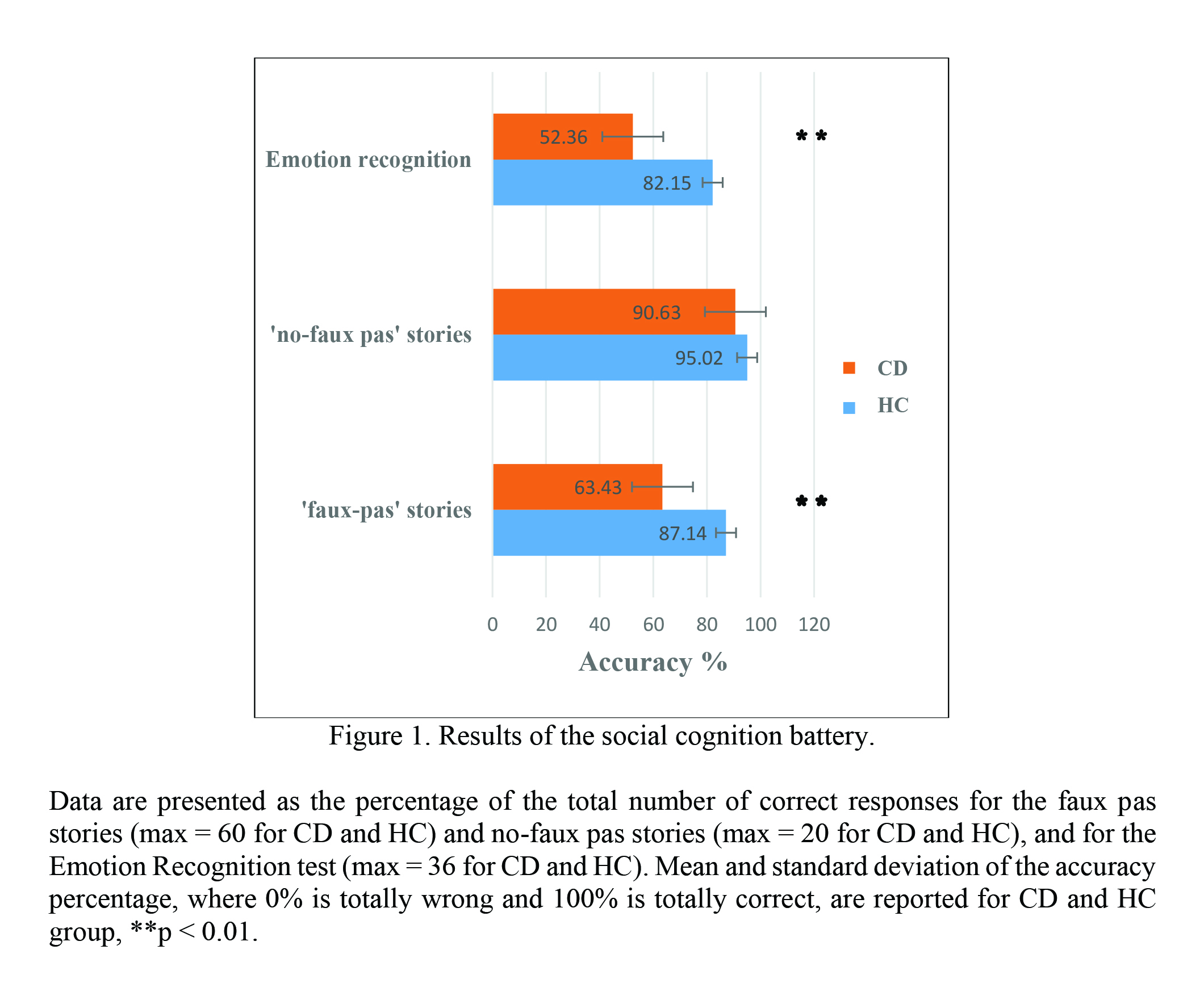Category: Ataxia
Objective: The aim of this study was to investigate social cognition (SC) in patients with different cerebellar neurodegenerative disorders (CDs).
Background: CDs are a heterogeneous group of disorders. It is known that the cerebellum plays a role not only in motor, but also in cognitive and social cognitive functions.
Method: SC was studied in altogether 53 patients with spinocerebellar ataxias (SCA), 12 SCA1 and 6 SCA2 patients, autosomal recessive cerebellar ataxia due to ANO10 mutations (8 patients), idiopathic late-onset cerebellar ataxia (ILOCA) (16 patients) and multiple system atrophy with cerebellar ataxia (MSAc) (10 patients). All patients underwent a brain MRI and genetic disorders were confirmed by genetic analyses. The subjects were diagnosed and tested at the Neurology Clinic, CCS in 2015/2018 and clinically evaluated using the Scale for the Rating and Assessment of Ataxia (SARA). SC was studied using two tests: the Faux Pas Recognition Test and the Reading the Mind in the Eyes Test (RMET). An appropriate array of neuropsychological tests was used to assess the global cognitive status as well as the frontal functions and mood. In addition, 54 age-, sex-, and education-matched healthy control (HC) subjects participated in the study.
Results: Descriptive statistics of social-demographic characteristics of groups in research are presented in Table 1. The Mann-Whitney U test showed significant difference in the average scores on the Faux Pas Recognition Test [U = 408.0, z = -6.397, p = 0.000 <0.01, r = 0.62 and RMET [U = 184.5, z = -7.776, p = 0.000 <0.01, r = 0.75 between the two groups. A review of the mean values of the group ranks and median score (Table 2) shows that the average achievement on the Faux Pas Recognition Test and on the RMET is higher in the HC group, while the average achievement on the Faux Pas Recognition Test and RMET is lower in the CD group. Boxplots of the аverage scores (in %) obtained by CD and HC in each SC task (Faux Pas stories, no Faux Pas stories and RMET) are reported in Figure 1.
Conclusion: Patients with CD have social cognitive impairments as demonstrated by the Faux Pas Test and the RMET test results. It is unclear whether social cognition impairment is the result of cerebellum damage or that of its network.
To cite this abstract in AMA style:
O. Tamas, M. Kostic, A. Kacar, A. Milovanovic, B. Salak Djokic, D. Stanisavljevic, E. Stefanova, N. Dragasevic Miskovic. Social cognition in patients with cerebellar neurodegenerative disorders [abstract]. Mov Disord. 2022; 37 (suppl 2). https://www.mdsabstracts.org/abstract/social-cognition-in-patients-with-cerebellar-neurodegenerative-disorders/. Accessed December 22, 2025.« Back to 2022 International Congress
MDS Abstracts - https://www.mdsabstracts.org/abstract/social-cognition-in-patients-with-cerebellar-neurodegenerative-disorders/



